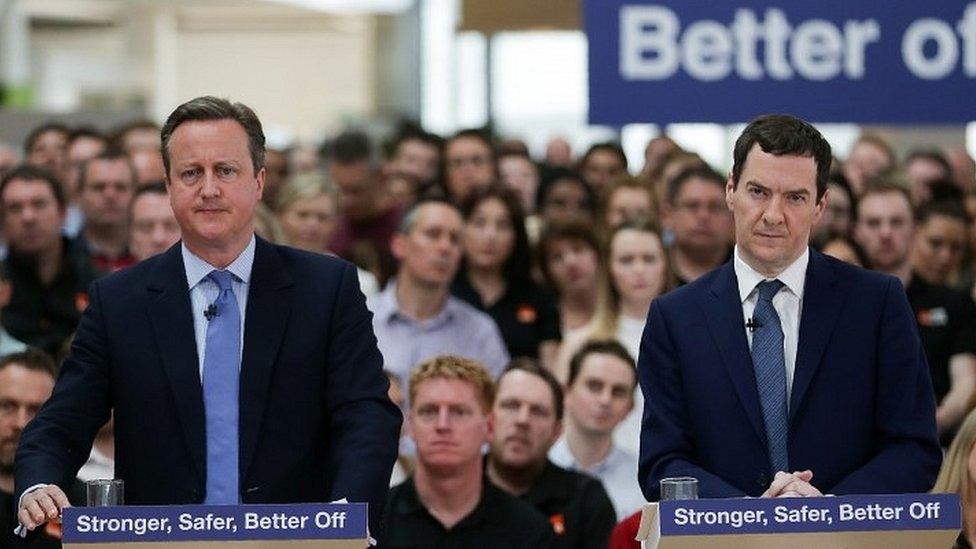David Cameron told to 'play EU system hard' on migrant benefits
- Published
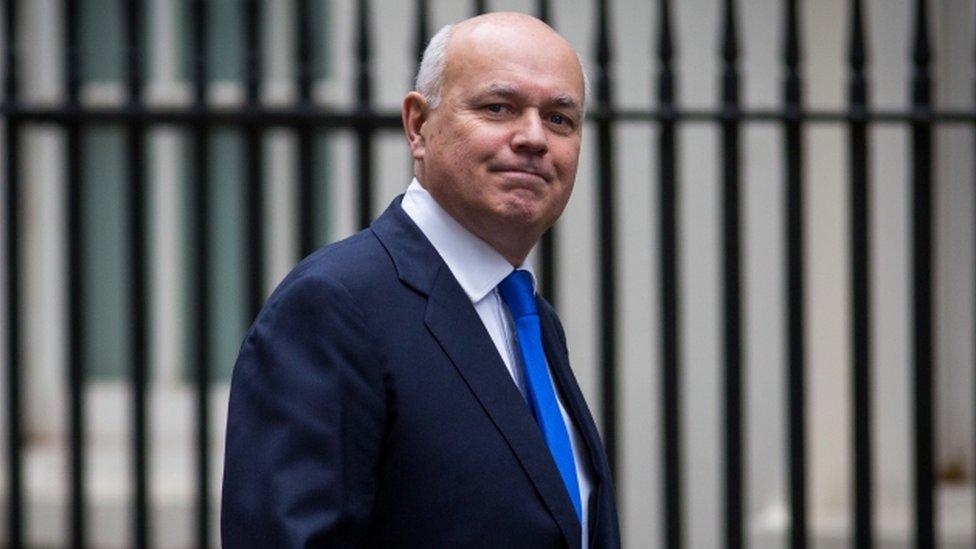
Iain Duncan Smith is resisting attempts by some in Downing Street to water down plans to curb benefits for EU migrants as part of the UK's EU reform demands.
The government wants migrants to wait four years before they can claim tax credits, to reduce immigration.
The aim is opposed by many EU countries - particularly in eastern Europe - who say it would be discriminatory.
The PM has indicated he would consider other ways of reducing migrants' incentives, to get a deal with the EU.
In a speech on 10 November, David Cameron said: "We have proposed that people coming to Britain from the EU must live here and contribute for four years before they qualify for in-work benefits or social housing. And that we should end the practice of sending child benefit overseas.
"Now, I understand how difficult some of these welfare issues are for other member states. And I am open to different ways of dealing with this issue."
'Early days'
Options being considered are understood to include imposing the benefit curbs on Britons too, so they are non-discriminatory, or reducing the proposed amount of time migrants would have to work in the UK before they could claim benefits.
But the work and pensions secretary, Iain Duncan Smith made clear his belief that the prime minister should stick to the plan to curb benefits for four years, emphasising repeatedly that this is a Conservative manifesto commitment. He also said that the UK had the private support of several EU countries in this matter.
The Conservative manifesto said: "We will insist that EU migrants who want to claim tax credits and child benefit must live here and contribute to our country for a minimum of four years. This will reduce the financial incentive for lower-paid, lower-skilled workers to come to Britain."
Mr Duncan Smith told reporters: "It was in our manifesto. The prime minister has made this clear. He is going to complete these discussions in the new year. He is going to present his case to the council.
"The important point, as I understand, is that the prime minister remains resolved on this matter."
Asked what alternatives to the four-year ban he would personally be ready to accept, Mr Duncan Smith replied: "That they agree with us. That's an alternative to the way the EU sometimes goes about its business."
'Play the system hard'
The work and pensions secretary also put further pressure on Mr Cameron by comparing his negotiations with former Prime Minister Margaret Thatcher's successful campaign in the 1980s to make big cuts to Britain's EU contributions.
He said: "I'm working very hard with the PM to get the deal he needs… it's early days in the process.
"It's worth also saying to people that when Mrs Thatcher went to Brussels over the budget rebate almost everybody, your predecessors, said 'it's not feasible, they won't agree it'."
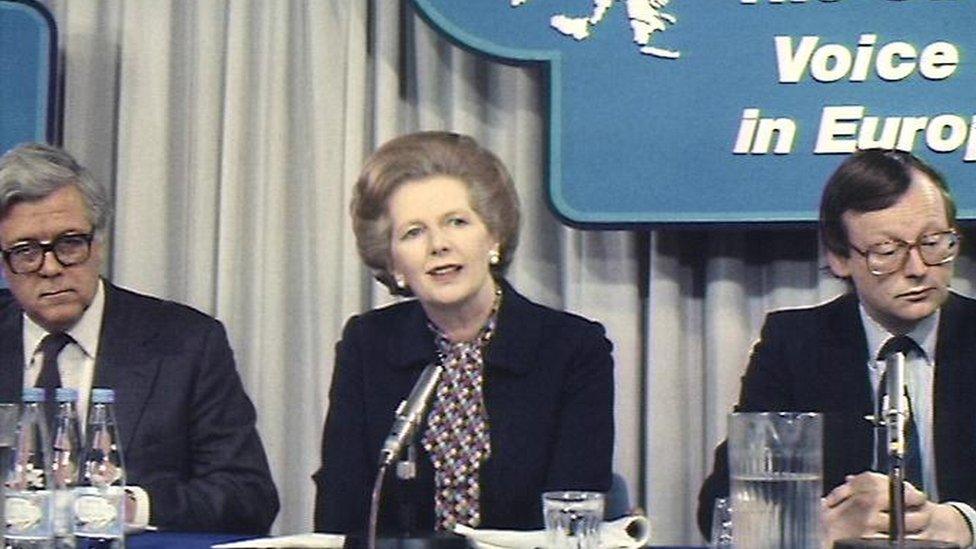
Mr Duncan Smith compared the PM's EU renegotiations to Mrs Thatcher's successful attempt to secure Britain's rebate from the EU
He added: "You had a letter like this one saying 'well nothing is agreed yet' and everyone said it won't happen and then she came back with a huge budget rebate.
"My point is if you play the system hard and you go in and make very clear what you want, I'm surprised that the system itself will probably at the end of the day give you what you really need."
Mr Duncan Smith also claimed that Britain had allies in the Netherlands, Germany and Denmark which had expressed sympathy with Britain's argument to limit welfare payments. "Quietly, behind closed doors, they all think this is an issue in Bavaria as much as in Birmingham," he said.
His comments follow Donald Tusk, the president of the European Council, saying in a letter this week that there was "presently no consensus" among EU members state over the UK's planned benefit reforms.
- Published7 December 2015
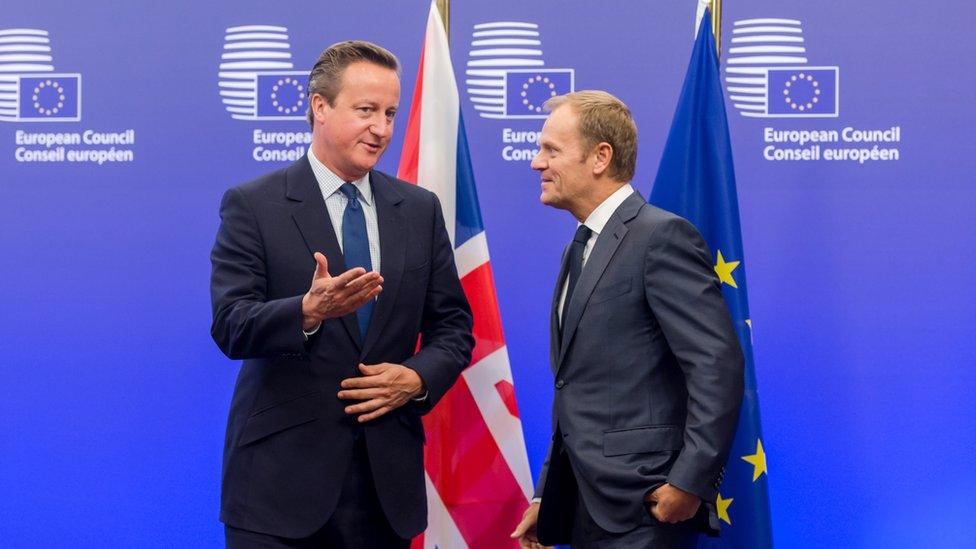
- Published10 November 2015
- Published17 February 2016
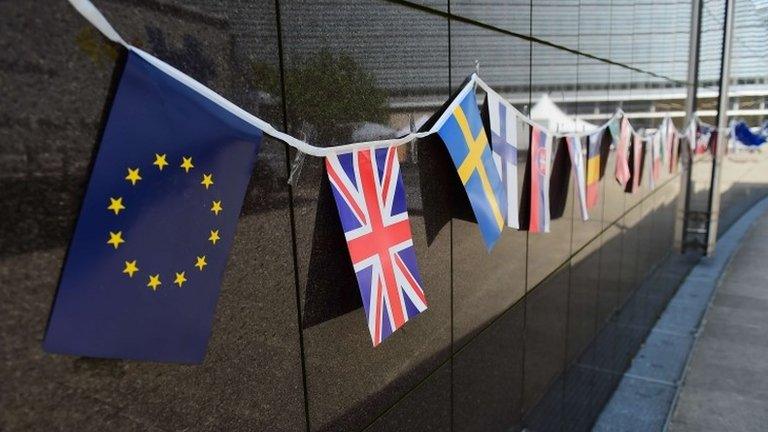
- Published30 December 2020

- Published14 March 2016
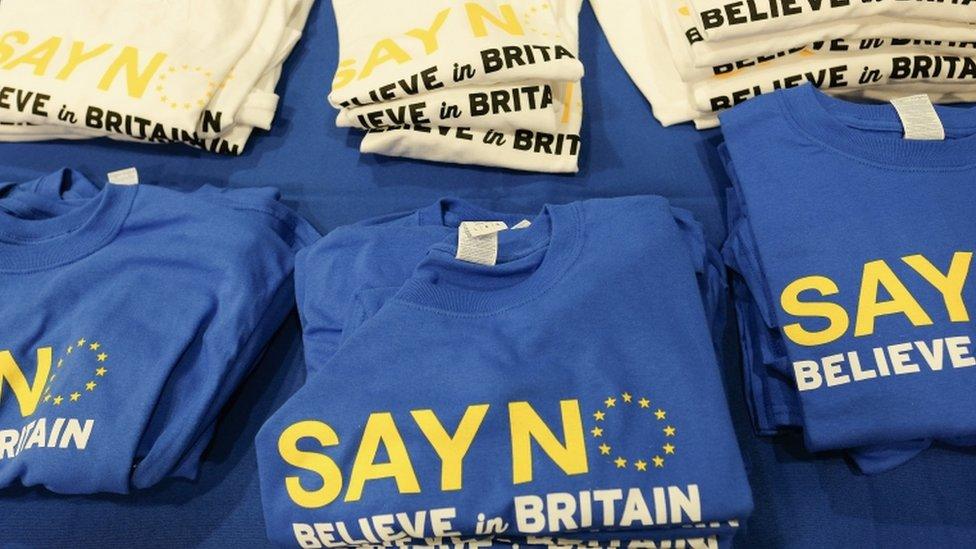
- Published13 June 2016
